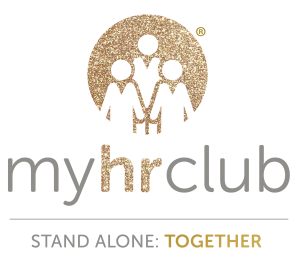At this stressful, uncertain time, many of us may be coming close to burnout. During the coronavirus pandemic it’s become harder and harder to maintain a work-life balance or find time for relaxation whilst staying informed about what is happening around us.
Burnout is a state of emotional, physical, and mental exhaustion caused by excessive and prolonged stress. It occurs when you feel overwhelmed, emotionally drained, and unable to meet constant demands.

We are all responding to the coronavirus pandemic in different ways. From speaking to friends and family, we have all heard the full spectrum of attitudes, ranging from despair to a very British stoicism, to a wholehearted embrace of the joys of baking bread and having a well tendered Garden!
However, perhaps the most prevalent feeling is one of weariness. “How much longer is it going to last?” we ask, fatigued by the ongoing social distancing measures and the constant cycle of unpredictable and mostly bad news.
While burnout is normally associated with long days at the office, it isn’t confined to that scenario. For certain, many people will be working harder than normal – not least frontline carers and other key workers, along with those who have responsibilities for colleagues who are on furlough. However, even if your workload hasn’t changed, the added pressures posed by the pandemic are very real.
Some people may not even realise they are experiencing burnout, because it’s not the type of feeling they are used to, many of us just aren’t used to this amount of psychological stress. There is so much for us to think about within our new lifestyles. There is a lot of pressure at the moment to use this time effectively, to do everything you’ve been meaning to do.
Some may be experiencing ‘decision fatigue’ – a lack of energy and focus, brought about by having to make too many small decisions. Should you go shopping in the morning, when it’s busier, or in the afternoon, when the shelves are barer? Will my child be safe in School/College/University? What about Christmas? When can we go on holiday again? Is my job safe?
For some it is really about survival. Will they be evicted? How will they cope? What about looking after elderly relatives and those who are still bereaved as well as those coping with post COVID illnesses? When will it all end??
We are all of us susceptible to burnout and there are a number of contributing factors, some of which are quite relevant at this time of social isolation and lockdown.
The charity Mind has found that rates of depression have doubled during the pandemic. Furthermore, the Coronavirus pandemic is reported to be taking a “significant toll” on women working in health and social care in the UK. In a recent ONS survey, over 72% of respondents believed their job was having a greater negative impact than usual on their mental wellbeing as a result of COVID-19, while 52% said the same for their physical health.
What are the stages of burnout?
There are usually five stages to a burnout – these are:
- Honeymoon phase, this is when you undertake a new activity and you have a feeling of hope, creativity and energy because you are starting something new that could lead to business opportunities. Some of the characteristics of this phase are job satisfaction, sustained energy levels and high productivity levels.
- Onset stress, this is when you start to notice stress symptoms such as fatigue, job dissatisfaction, anxiety and lack of motivation.
- Chronic stress, you are experiencing stress on a regular basis. Symptoms include, feeling pressured, regular illness, procrastination, no motivation and a lack of a positive mindset in work and your social life.
- The fourth stage of burnout is characterised by physically feeling empty, exhausted and like you cannot keep up with the demands of life (even simple tasks). Some of the symptoms are, behavioural changes, chronic problems, self- doubt and neglect of personal needs.
- Habitual burnout, this is when you are prone to having a lot of stress or burnouts frequently because the symptoms are so embedded in your everyday life. The typical symptoms for this stage are depression, chronic sadness and mental and physical fatigue.
So, given all the challenges we are facing, how can you prevent burnout?
- Keeping fit, exercising is so important for the mind and physical health. This is because when you exercise you release endorphins, giving an emotional boost
- Good sleeping habits (going to bed at a reasonable time and trying to stick to the same time every night putting your body into a routine)
- Eating healthily (balanced diet)
- If you are struggling with something, then reach out to someone you can trust
- Know your breaking point and when to stop
- Have a ‘digital detox’. We are always ‘on’ – switching off gadgets to have ‘non-screen time’ and leaving your phone downstairs when you go to bed are good practices to begin
- Try and avoid people who are negative and focus on the positive people in your life
- See the good in situations (adopt a growth mindset and a sense of gratitude where possible)
- With so many working from home right now, it’s important to find a balance in your work/home life, be strict with your start and finish times and have regular lunch breaks.
For more information on how My HR Hub can help you with Wellbeing Programmes, please contact hello@myhrhub.co.uk


Great article Tilly and so relevant. A pit stop to recharge and review is an essential element of balancing the chaos with what’s important in our lives and in helping build resilience. I’m so looking forward to the Retreat… fingers crossed 🤞